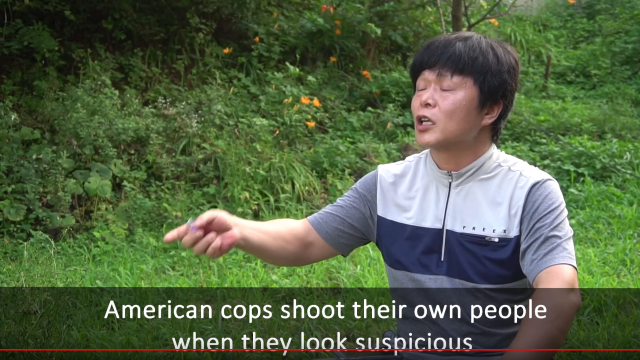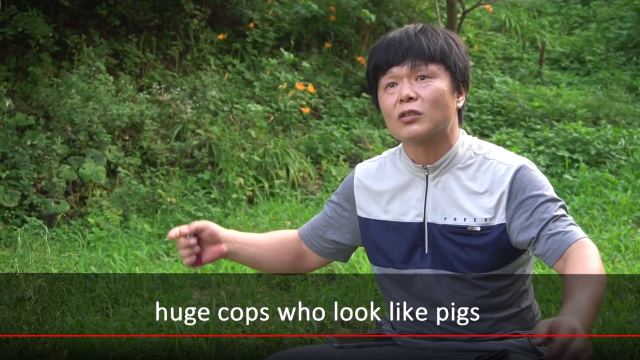"The combined number of those seeking to stay in China and those wanting to return to the North is actually greater than those hoping to reach South Korea."
"The more South Korea and the international community get involved in defector issues with their own political agenda, the more likely it is to end up further cementing our national division."
Lee Sung-hwan (pseudonym): "I hate being called a ‘defector.’ I didn’t leave because I’m opposed to the politics in North Korea. I’m just someone who left to earn money, and I plan to return once I’ve made some."
Note: Hankyoreh is a center-left liberal newspaper from South Korea.
Excerpts:
Since 1997, Cho has met with North Korean defectors primarily in China’s Yanbian prefecture and the North Korean-Chinese border region. Other than last year, when the COVID-19 pandemic made it impossible to visit China, he has met with defectors virtually every year for the past two decades or so. Based on his meetings, they presented quite a different image from the one commonly perceived in South Korea, he said.
For example, Cho administered a survey to 100 female North Korean defectors whom he had met with three or more times between August 2001 and October 2003. Forty-one of them said they wanted to travel to the South, while the other 59 did not: 34 wanted to return to North Korea, 21 hoped to remain in China, and four wanted none of the above. Indeed, Kim Ryon-hui, the so-called “Pyongyangite in Daegu,” has demanded repatriation ever since she arrived in the South in 2011, insisting that she only came because she had been “deceived by a broker.”
Lee Sung-hwan (pseudonym), one of the defectors who hoped to return to the North, is quoted as saying, “I hate being called a ‘defector.’ I didn’t leave because I’m opposed to the politics in North Korea. I’m just someone who left to earn money, and I plan to return once I’ve made some.”
Pak Kyong-hwa (pseudonym) is a native of Onsong, North Hamgyong Province, whom Cho met in the Chinese city of Yanji in 2014. “If it’s someone who left after committing a crime, someone who’ll be punished if they go back, you’ll never hear them talk about going back to North Korea. But people like us just quickly earn money and go back,” she explained.
“Certain brokers, NGOs and missionary groups have been orchestrating and expanding North Korean defections to South Korea for political purposes. And as certain far-right and conservative media in South Korea and Japan have either parroted the things they say or actively orchestrated things themselves, things have really crossed the line,” Cho said.
The primary victims of actions like these are the defectors themselves. Orchestrated defections lead to intensified controls on the North Korean-Chinese border, leaving far fewer options available to those who seek to remain in China or return to the North.
Some defectors, NGOs and missionary groups have also taken advantage of this “defector myth” to perpetrate fraud. As a representative example, Cho mentioned the Yerang Mission incident, which the Supreme Court declared a case of fraud in 2008. Beginning in the early 2000s, the mission appropriated over 2 billion won (US$1.8 million) in donations raised through internet posts about “risking death to evangelize in North Korea” and the “martyrdom and defections of North Koreans.” In 2006, the church was tried amid accusations by congregation members, and most of the messages it posted were found to have been false.
“The more South Korea and the international community get involved in defector issues with their own political agenda, the more likely it is to end up further cementing our national division,” he warned.
Related:
- Nearly 1 in 5 North Korean defectors say they regret coming to South Korea
- Interview: A North Korean mother’s quest to return home to Pyongyang
- [CW: Child abuse, SA] S. Korean pastor under investigation for molestation at the boarding school he established for N. Korean defectors
- "Spy Nation" (2016): Film Shines Light on South Korean Spy Agency’s Fabrication of Enemies
- Unreliable witnesses: The challenge of separating truth from fiction when it comes to North Korea
- The insidious threat of fake news surrounding North Korea


